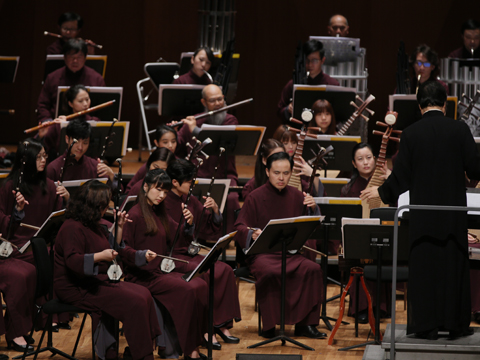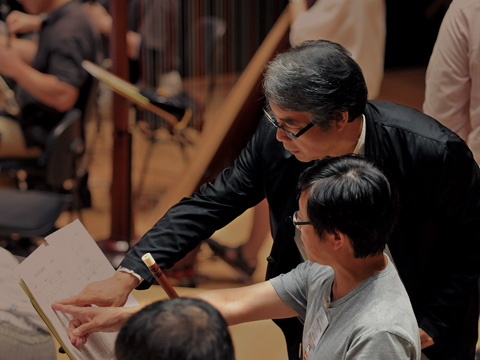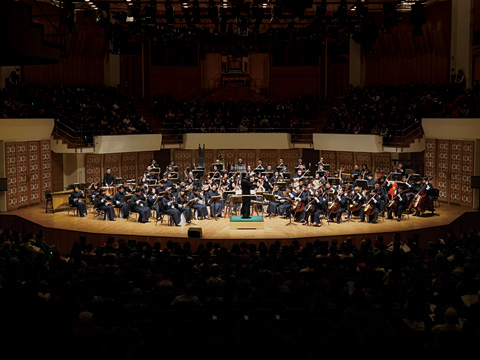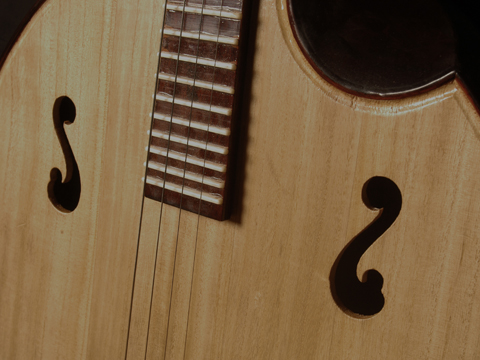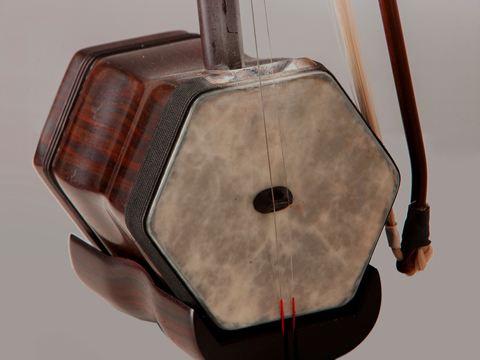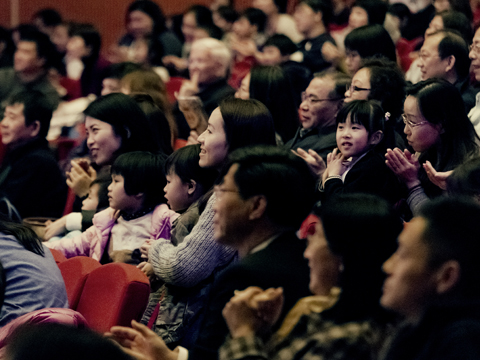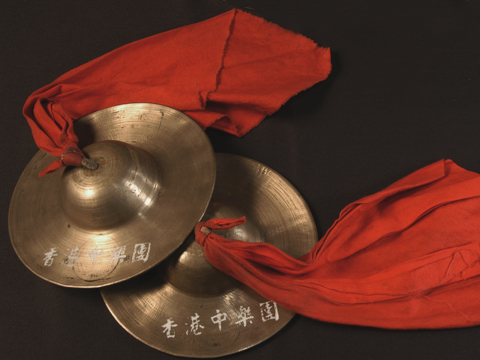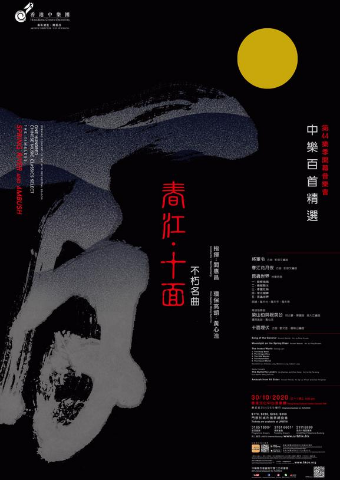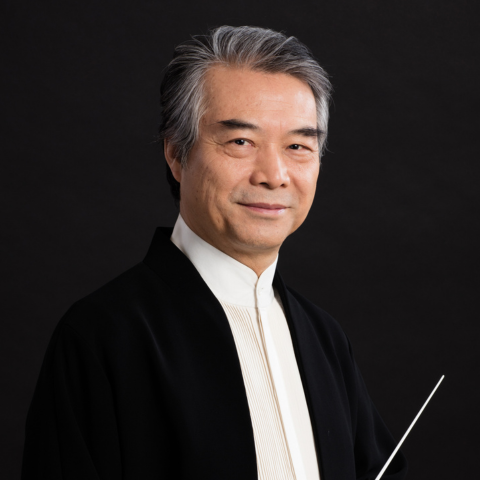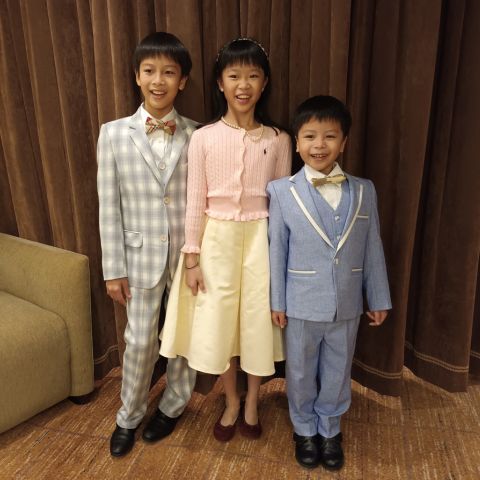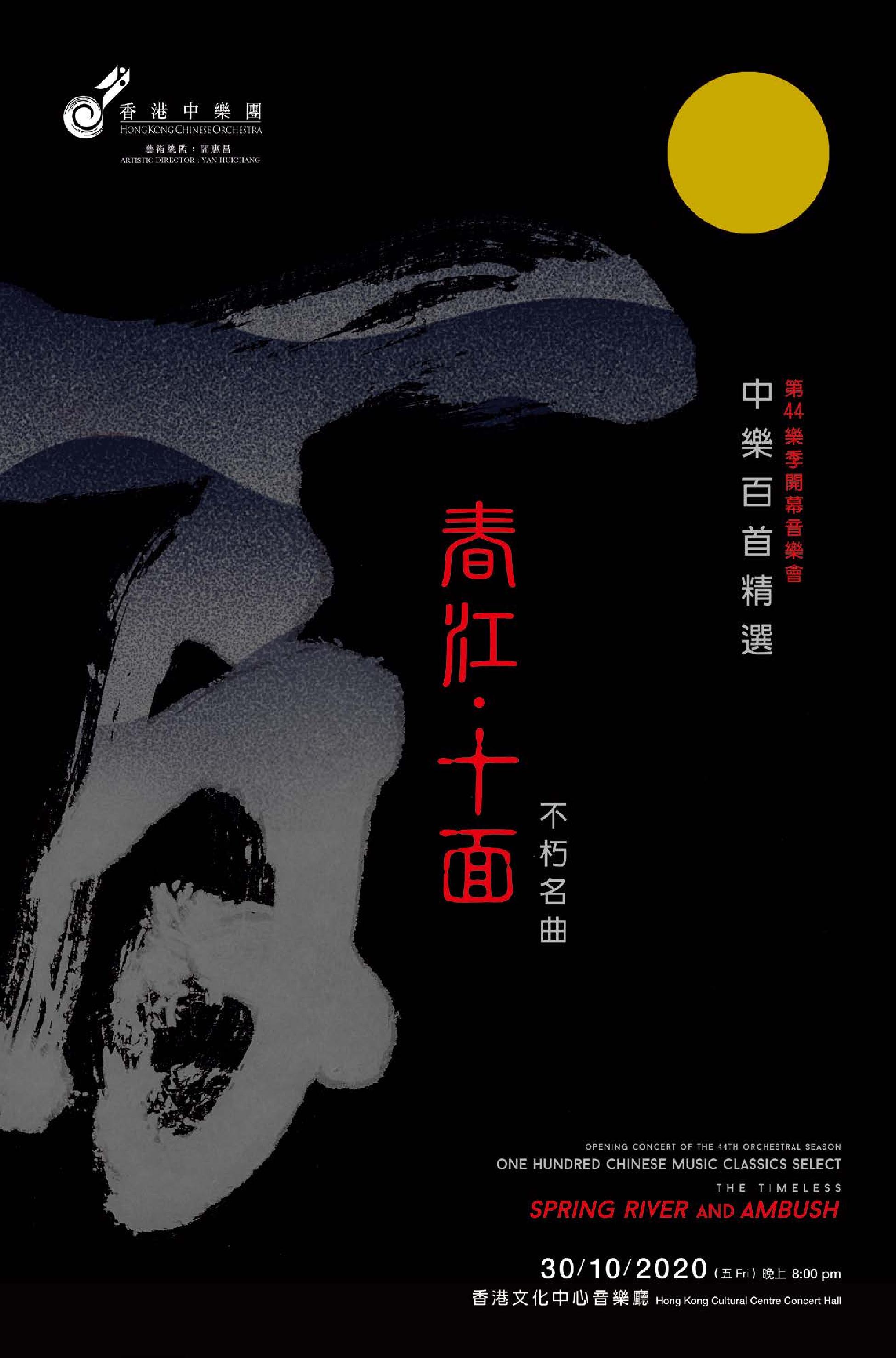A Delectable Feast of All-time Favourites
Chow Fan-fu
There must be well over a hundred pieces of music that can fit the bill as “classics” in today’s Chinese orchestral repertoire. In programming the ‘One Hundred Chinese Music Classics Select’ concert series for the Hong Kong Chinese Orchestra, its artistic team would understandably have set their selection criteria. But from the angle of mass accessibility, the pieces have to possess timeless appeal. So, to put the selected classics together as a concert series, one can liken it to planning a banquet menu, with different tastes that need to be carefully considered. A mere jumble of even the rarest delicacies and finest foods will hardly achieve the desired culinary effect.
A study in contrasts
The five classics featured in this concert are like perennial favourites on the banquet table. To arrange the pieces in the concert programme, though, the considerations more important than simply accommodating their lengths within the concert duration are the order in which they are performed and how well they match and fit with each other. Apart from the differences in content, colour, mood and emotion, the sequencing and contrastive effects must also be complementary so as to highlight the particular character and texture of each piece. At the same time, as the opening concert for the season, all the pieces selected possess unique connotations. The most obvious is the opening number Song of the General, an ancient tune with traditional Chinese operatic colour and magnificent wind and percussion timbres, which creates the lively scene of the triumphant return of a victorious army. It is a befitting design to invite the audience to kick off the celebrations of the HKCO’s new season.
Next on the programme is Moonlight on the Spring River, an adaptation of another ancient tune, which paints a beautiful and tranquil scene and is in sharp contrast with Song of the General. The two not only portray different musical effects but also help the audience to relax after the exuberant opening piece.
As the last item before intermission, Doming Lam’s The Insect World is a commissioned work by the HKCO in the 1970s. It is an example of the successful integration of multiple modern compositional techniques with a full-size Chinese orchestra, and broadens the scope for symphonic Chinese music. To render and embed a variety of musical concepts as images represents a significant breakthrough, underscoring yet another contrast between The Insect World’s modernity and the quaint tones of the two preceding pieces.
Ambush from All Sides reprises the foci
The second half of the concert opens with The Butterfly Lovers gaohu concerto, adapted by HKCO in 1978 from the 1959 opera of a Chinese folklore. The original was a passage from traditional Chinese theatre, while the adaptation was a Western concerto for the violin. It was an instance of Chinese music employing foreign techniques. The HKCO’s subsequent gaohu edition not only provided a new panorama for symphonic Chinese music, but also added a different cultural touch to this well-known work.
The finale Ambush from All Sides constitutes the focal point of the concert by reprising the essence of the other four pieces. As another ancient tune, it is similar to Moonlight on the Spring River as it is also derived from pipa music. But unlike Moonlight which is from the ‘civil’ category with its soft, lyrical timbre, Ambush is from the ‘military’ category of the Northern school of pipa. The characteristics are starkly opposite. Also, Ambush is a robust number from the ‘military’ repertoire, the structure and technique of which are very dissimilar to the Western-style The Insect World and The Butterfly Lovers.
The difference between the heroic historical conflict of the two states of Chu and Han in Ambush and the love and regrets in the folklore The Butterfly Lovers is the difference between ‘thrills’ and ‘poignancy’ for the listener. The winner-takes-all message of the finale echoes the victorious army’s homecoming of the opening Song of the General. Like the highly anticipated main course of a banquet, Ambush from All Sides allows the audience to savour once again all the flavours of the other dishes already served. In other words, the finale wraps up the emotional roller coaster of all the changes in content, mood, colour and effects of the entire concert experience. The satisfying climax leaves the audience wanting an encore, and the freshness and appeal of these timeless melodies remain undiminished.

